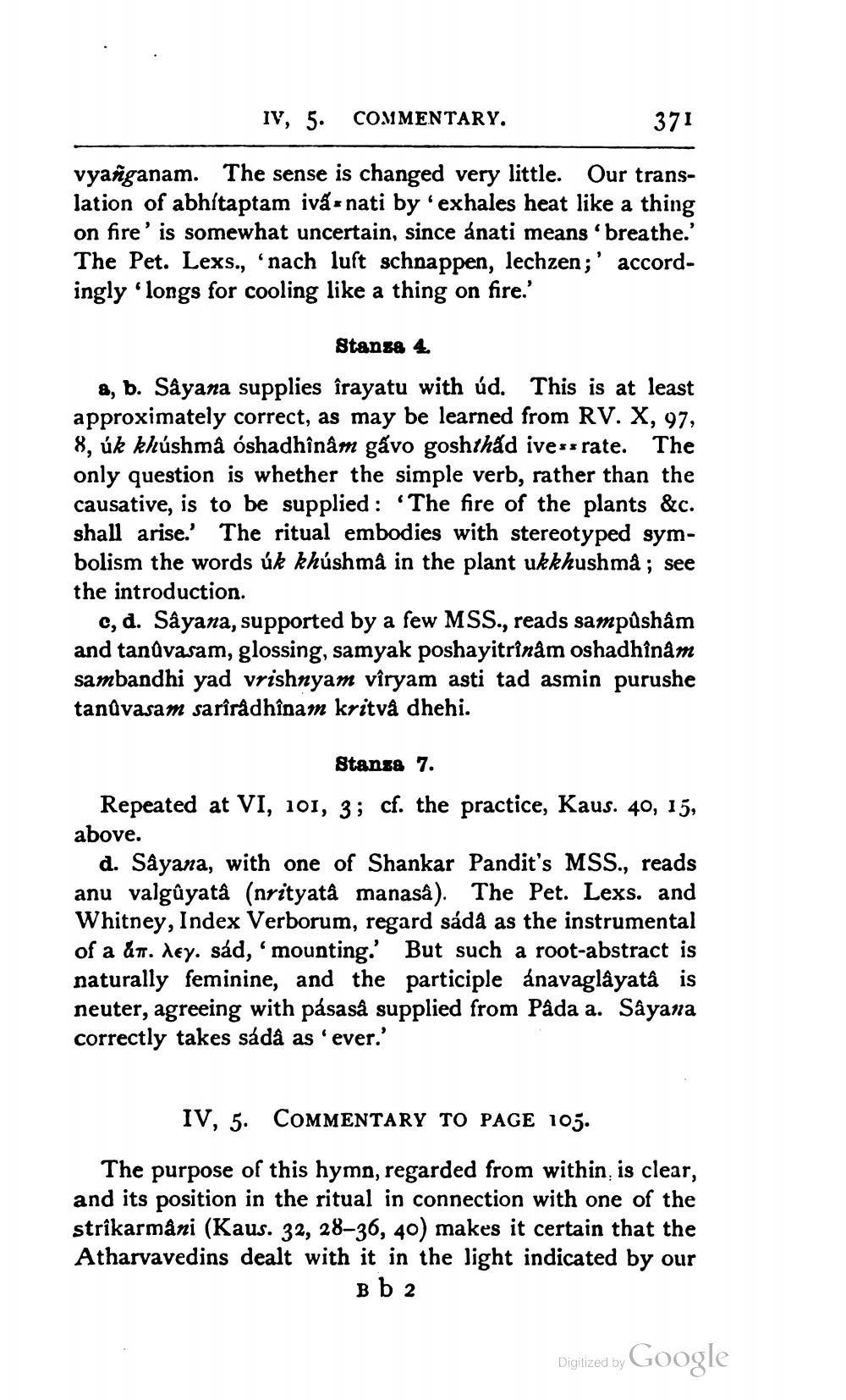________________
IV, 5. COMMENTARY.
371
vyañganam. The sense is changed very little. Our translation of abhítaptam iva-nati by 'exhales heat like a thing on fire' is somewhat uncertain, since ánati means 'breathe.' The Pet. Lexs., 'nach luft schnappen, lechzen;' accordingly 'longs for cooling like a thing on fire.'
Stanse 4. a, b. Sayana supplies îrayatu with úd. This is at least approximately correct, as may be learned from RV. X, 97, 8, úk khúshmå oshadhinâm gấvo goshthád ivess rate. The only question is whether the simple verb, rather than the causative, is to be supplied: "The fire of the plants &c. shall arise.' The ritual embodies with stereotyped symbolism the words úk khúshmâ in the plant ukkhushmå ; see the introduction.
c, d. Sâyana, supported by a few MSS., reads sampúshâm and tandvasam, glossing, samyak poshayitrinam oshadhînâm sambandhi yad vrishnyam vîryam asti tad asmin purushe tandvasam sarîrådhînam kritvå dhehi.
Stansa 7. Repeated at VI, 101, 3; cf. the practice, Kaus. 40, 15, above.
d. Sâyana, with one of Shankar Pandit's MSS., reads anu valgûyatá (nrityata manaså). The Pet. Lexs. and Whitney, Index Verborum, regard sádà as the instrumental of a &t. dey. sád, mounting. But such a root-abstract is naturally feminine, and the participle anavaglâyatâ is neuter, agreeing with pásaså supplied from Påda a. Sayana correctly takes sádå as ever.'
IV, 5. COMMENTARY TO PAGE 105.
The purpose of this hymn, regarded from within, is clear, and its position in the ritual in connection with one of the strikarmani (Kaus. 32, 28–36, 40) makes it certain that the Atharvavedins dealt with it in the light indicated by our
Bb 2
Digitized by
Digjized by Google




